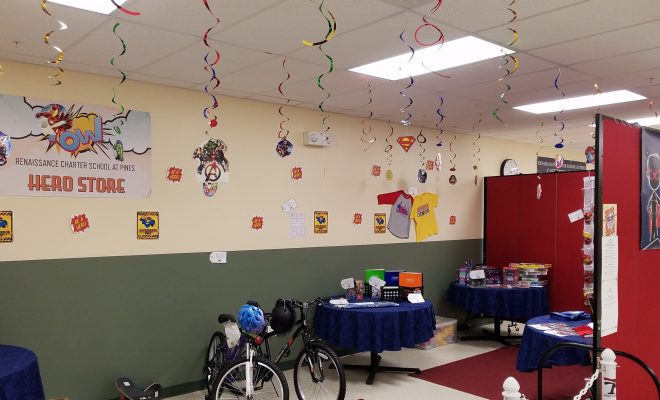Textbooks in the digital world

Kui Xie, The Ohio State University and Nicole Luthy, The Ohio State University
For decades, textbooks were seen as the foundation for instruction in American schools. These discipline-specific tomes were a fundamental part of the educational infrastructure, assigned to students for each subject and carried in heavy backpacks every day – from home to school and back again.
The experience of students is much different today.
As a scholar of learning technologies and a director for outreach and engagement at Ohio State’s College of Education and Human Ecology, we’ve seen how technological advances and an increase in digital curriculum materials have hastened the move away from textbooks.
Does all of this technology spell the end of traditional textbooks? And if so, is that actually a good thing for students and teachers?
Standards and the decline of textbooks
In 1983, President Ronald Reagan’s National Commission on Excellence in Education released “A Nation at Risk,” which put a spotlight on school quality and accountability for student achievement. By the mid-1990s, the academic standards movement had picked up steam, spurred by “Goals 2000,” the Educate America Act of 1994. In response, states and local communities drafted guidelines to indicate what students should know at each grade level.
With these guidelines, educators and policymakers began to question teachers’ reliance on textbooks. Education organizations examined textbooks not only for their accuracy and quality, but for their alignment to academic standards. Where once student success was marked by the end-of-chapter test for whatever textbook each school happened to use, success was now measured by how well students met standardized grade-level learning objectives. Different textbooks might produce different levels of knowledge and understanding from students, but the new standards were common across an entire state.

AP Photo/Bruce Schreiner
Increased access to digital content
With the rise of the internet and the proliferation of online content, teachers have found new sources to support student learning.
Recent studies report that student-computer ratios in most U.S. schools have reached 5:1 (five students per computer), with almost all teachers having access to at least one computer in their classroom. One-to-one laptop programs, which provide every student with a computing device, have spread across multiple states.
To support these initiatives, schools have access to a wealth of free and premium content designed specifically for a K-12 curriculum. Most textbook publishing companies have launched digital platforms; in fact, several have transformed their core identities from traditional textbook publishers to learning science companies or digital education companies.
Much of this digitized content has blurred the definition of a “book.” Digital lessons can present information through dynamic, interactive features like simulations and videos. Digital textbooks can also provide support features that just aren’t possible in a print textbook: students can highlight text, search for content, change the font size or use text-to-speech audio.
Teachers are also looking outside the world of K-12 education to support their lessons. Content freely available on the internet (including digital collections by the Smithsonian, Library of Congress and NASA) has created new opportunities for teaching and learning. Teachers can make classes more dynamic, more accurate and more customizable to meet the personalized learning needs of individual students.
Challenges in the digital world
But it’s not all good news. Schools are also confronting new challenges brought on by digital content.
Textbooks are relatively easy to use. The same is not necessarily true for digital resources, which might require technological expertise – on the part of the teacher or an in-school specialist – to implement well. Moreover, teachers’ beliefs about technology integration are still barriers for adopting digital content in classrooms.
There’s also a question of cost. Well-equipped schools are eagerly “going digital,” often reallocating their textbook budgets to purchase these materials. However, a lot of schools struggle to cover the costs of making the transition. Similarly, some schools, specifically those in rural communities, find it difficult to access wireless or high-speed internet services needed for digital learning: In 2016, 39 percent of rural areas lacked broadband internet.
How to choose digital content
Infrastructure and technological know-how aren’t the only obstacles. Digital education resources also vary in quality, and selecting the right content can be a major challenge for schools.
That means that a teacher’s ability to evaluate and select digital content becomes an important requirement for digital learning. Teachers need to be able to find the right resources for their lessons – and make sure they’re high quality, aligned to standards and compatible with existing tools. Without these skills, teachers struggle to integrate technology and digital content with their own teaching methods.
Most teachers rarely get the opportunity to learn how to evaluate, select and integrate digital resources into their classrooms. Professional development programs and resources from educational support organizations can help teachers make the transition to digital content.
While these resources exist, not enough teachers are able to take advantage of them. Our research indicated that the majority of teachers rate themselves low when asked to indicate their knowledge and skill in digital content evaluation.

AP Photo/John Bazemore
Embracing digital
So, do we still need textbooks? Yes. But the composition as well as the role of textbooks is changing. They’re becoming more digitized, more open, more affordable, more dynamic and interactive, and more frequently updated.
Schools are buying fewer textbooks and are more often using them only as classroom or library reference materials or to teach special topics. Many school districts are shifting funds from their textbook budgets to purchase devices and digital content, but are making changes incrementally and replacing books with digital content based on their 3- to 5-year curriculum adoption schedules.
![]() Meanwhile, the proliferation of technology tools and resources has transformed the learning landscape. The shift from print to digital has given students and teachers access to content that exceeds the quantity and quality of a traditional textbook. With these advances come more engaging and exciting ways for students (and teachers) to learn.
Meanwhile, the proliferation of technology tools and resources has transformed the learning landscape. The shift from print to digital has given students and teachers access to content that exceeds the quantity and quality of a traditional textbook. With these advances come more engaging and exciting ways for students (and teachers) to learn.
Kui Xie, Cyphert Distinguished Professor of Learning Technologies; Director of The Research Laboratory for Digital Learning, The Ohio State University and Nicole Luthy, Director of Outreach and Engagement in the Office of Diversity, Inclusion and Community Engagement, The Ohio State University
This article was originally published on The Conversation. Read the original article.






